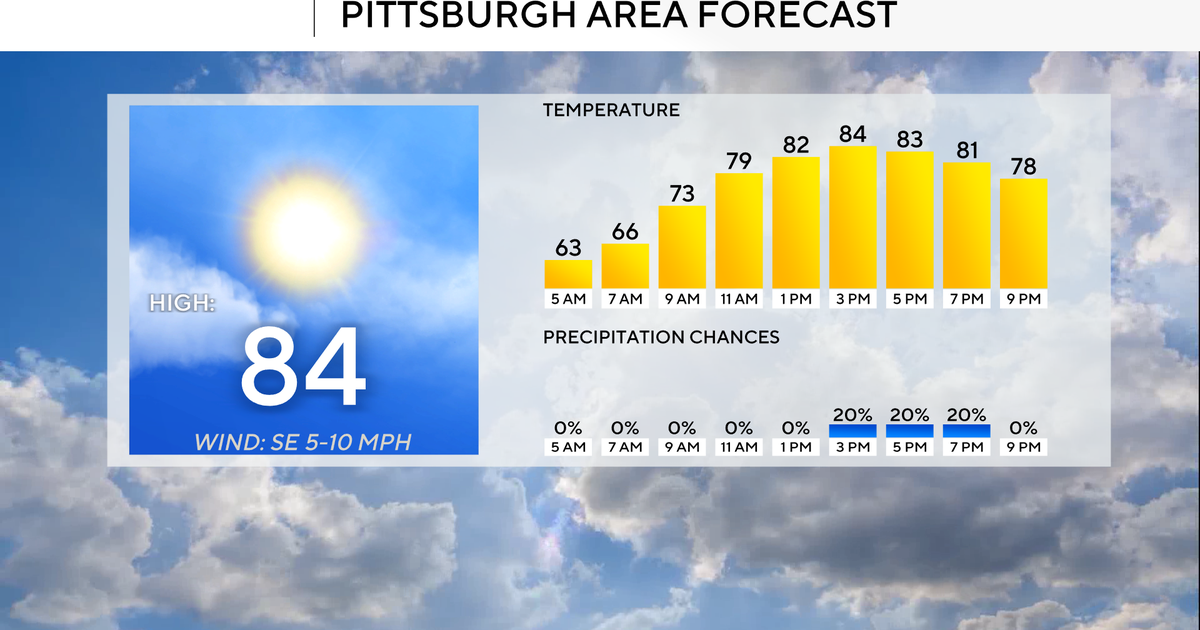Snow, Falling Temperatures Causing Slick Road Conditions
PITTSBURGH (KDKA) -- Despite the best efforts of the road crews, this storm has proved a more than capable foe, -both in the city, and especially the further north you go.
Latest Forecast:
"You just have to slow down," said Mel Correll, of Brockport. "I was doing 10 miles an hour or less coming across 80."
Whether it was Interstate 80 or Interstate 79, in many areas, the snow outpaced the crews, leaving roadways slippery and slushy.
"Actually, in the last 20 minutes, saw two accidents - a tractor trailer off the road to the right, and just up here near the 79-80 intersection, there was an accident, two vehicles off in the median," said Correll.
On snowy Route 19 sits Moore's Hardware in Portersville where Dave Daugherty was working hard to keep the sidewalk shopper-friendly.
"We have to still move it out of our parking lot and the sidewalk, and keep everything moving, but it's winter in Pennsylvania," said Daugherty.
But there is green in all this white.
KDKA's John Shumway Reports:
"Well, you can't sell snow shovels without snow," Daugherty. "So, it can be good, you know, ice and stuff, it can be a good thing for us."
Meanwhile, on Pittsburgh's South Side, city crews got started long before heavy snow and temperatures began to fall.
They're treating intersections and areas near overpasses, places where skidding accidents happen most often.
The early treatment comes for two reasons: the snow and the falling temperatures.
Anybody caught on city streets during the morning rush hour back on Dec. 10 knows all too well how changing temperatures can affect streets.
The city's Public Works director says because of the projected temperatures, the city's salt mix will be adjusted.
KDKA's Harold Hayes Reports:
"The salt loses its effectiveness when the temperature drops, normally about 25 degrees it becomes less effective," said Rob Kaczorowski, of Pittsburgh Public Works. "So, what we do is once it hits that 25 degree mark, we'll start spreading the load with calcium chloride. Our salt will be treated with calcium chloride and that will make the salt help melt the snow and ice up to 25 below. So, once that temperature gets to that 25 degree mark, we'll start spreading our loads with calcium chloride."
RELATED LINKS
More Local News
Latest Conditions
Weather Map
Radar
Traffic Alerts
Traffic Cams
Send Us Your Weather Photos
School Closings



